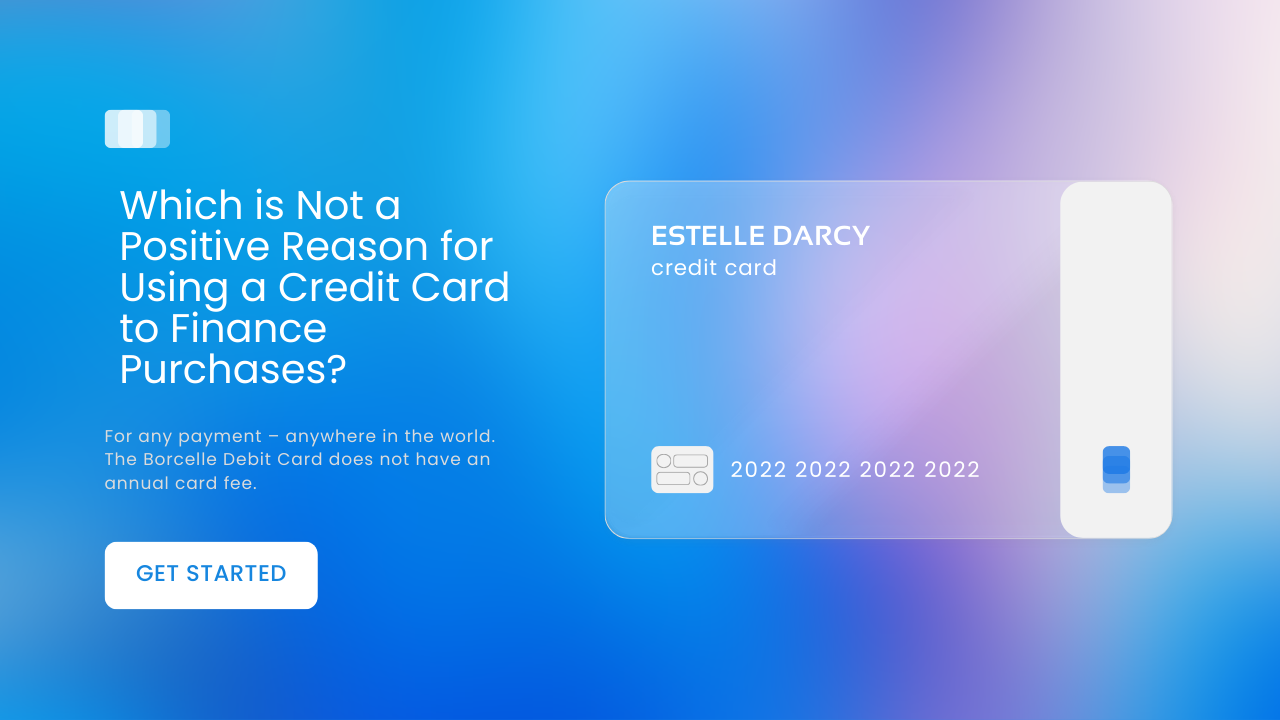Introduction
Which is not a positive reason for using a credit card to finance purchases?: The use of credit cards to finance purchases has become a widespread practice. Thanks to the convenience and benefits they offer, credit cards have become integrated into everyday financial habits. However, not all reasons for using a credit card are positive. Understanding the implications of these ratios is crucial to maintaining financial health.
Types and categories
Types of credit cards
- Standard credit cards: Basic cards that offer credit limits without additional benefits.
- Rewards credit cards: Offer points, cash back or miles to spend.
- Secured Credit Cards: Request a security deposit and help build credit.
- Student Credit Cards: Designed specifically for college students with limited credit history.
- Business credit cards: Designed to cover business expenses with higher limits and rewards.
- Credit cards: require the balance to be paid in full each month.
Credit card usage categories
- Daily expenses: groceries, gasoline and meals.
- Large purchases: electronics, appliances, furniture.
- Emergencies: Unexpected medical expenses or car repairs.
- Travel: Book flights, hotels and car rentals.
- Online Shopping: E-Commerce Shopping.
- Debt consolidation: Transfer balances from other cards to reduce interest rates.
Symptoms and signs
Indicators of healthy credit card use
- Pay off balances monthly: avoid interest by paying off balances.
- Strategic Use of Rewards: Maximizing the Benefits of Rewards Programs.
- Monitor data regularly: ensure there is no fraudulent activity.
- Keep usage low: Keep a balance low relative to your credit limit.
Warning signs of negative credit card use
- Carry High Balances: High balances in constant rotation.
- Late payment: resulting in late payment fees and increased interest rates.
- Use credit to meet needs: Rely on credit cards to cover basic expenses.
- Ignoring data: Not tracking expenses and uncovering problems.
Causes and risk factors
Biological factors
- Financial Habits: Behaviors learned from the family regarding money management.
- Impulsivity: The tendency to make spontaneous purchases without considering the consequences.
Environmental factors
- Economic Climate: Economic downturns leading to increased reliance on credit.
- Marketing influences: Aggressive advertising promoting the use of credit cards.
- Peer pressure: Social influences that encourage spending beyond means.
Lifestyle factors
- Living beyond means: Spending more than income can be sustained.
- Lack of financial literacy: Insufficient understanding of credit card terms and conditions.
Diagnosis and tests
Evaluate credit card usage
- Credit Reports: Periodic checks to monitor your credit score and prepare a report.
- Budget analysis: Evaluating revenues versus expenses.
- Debt-to-income ratio: Calculating total monthly debt payments relative to income.
- Review spending habits: Track and categorize all credit card transactions.
Treatment options
Medical Treatments
- Financial Advice: Professional guidance in managing credit card debt.
- Debt Management Plans: Payment plans organized through credit counseling agencies.
Treatments
- Behavioral therapy: treating impulsive spending habits.
- Cognitive therapy: Changing negative thoughts and beliefs about money and credit.
Lifestyle modifications
- Budget: Create a realistic budget and stick to it.
- Savings plans: Create an emergency fund to avoid depending on credit.
- Spending limits: Set personal limits on credit card usage.
Precautionary measures
Tips and strategies
- Education: Promote financial education through courses and reading.
- Automatic Payments: Set up automatic payments to avoid late payment fees.
- Regular Monitoring: Keep track of credit card data and credit score.
- Limit Limiting: Use only a portion of your available credit limit to avoid over-reliance.
Personal stories or case studies
Personal Stories or Case Studies
Real life effects
- Success Story: How One Person Used a Debt Management Plan to Overcome Credit Card Debt.
- Cautionary Tale: A story of financial struggle due to excessive use of credit cards and high interest rates.
Expert Perspectives
Quotes and advice
- Financial advisors: information on best practices for using credit cards.
- Economists: Perspectives on the broader economic impacts of credit card debt.
- Psychologists: Understanding the psychological aspects of credit card dependency.
Conclusion
Summary of key points
Credit cards can be a valuable financial tool when used responsibly. However, they can also cause significant financial problems if used incorrectly. It’s important to recognize potential negative reasons for using credit cards, such as living beyond your means, falling into cycles of debt, and paying excessive interest.
Call to action
Educate yourself about credit card terms, monitor your credit card usage regularly, and seek professional advice if you are struggling with credit card debt. Maintaining financial health requires awareness and proactive management of your credit habits.
